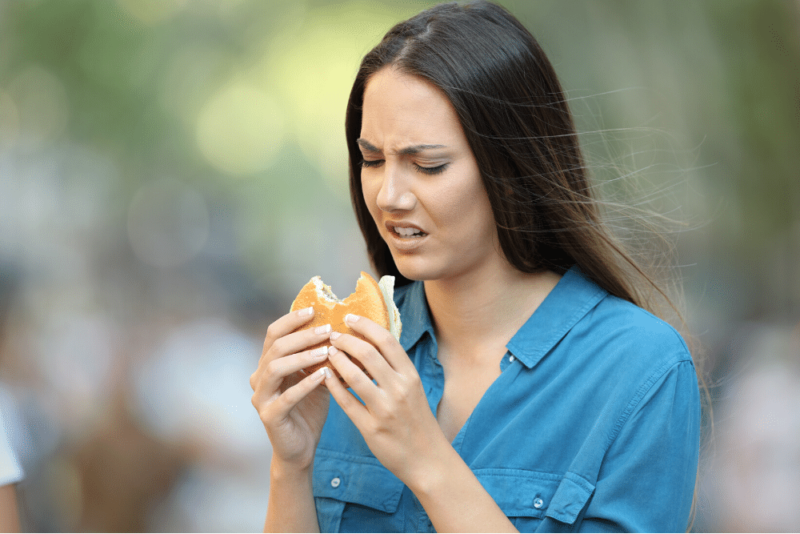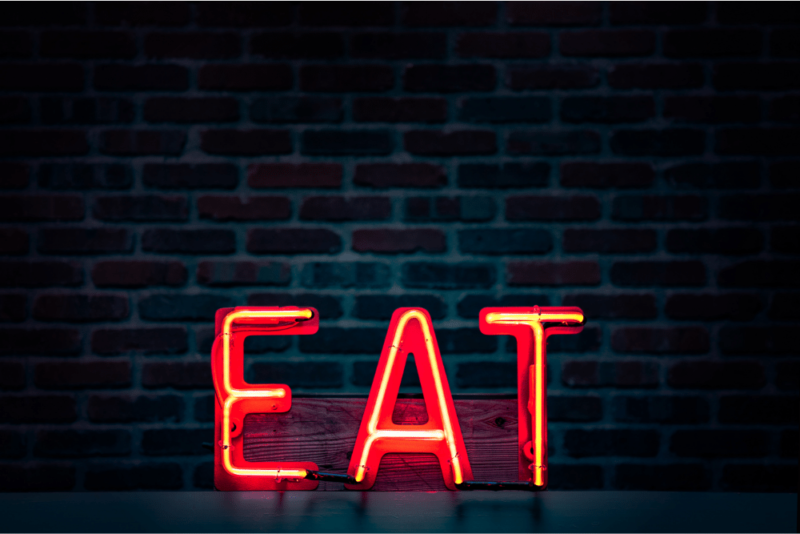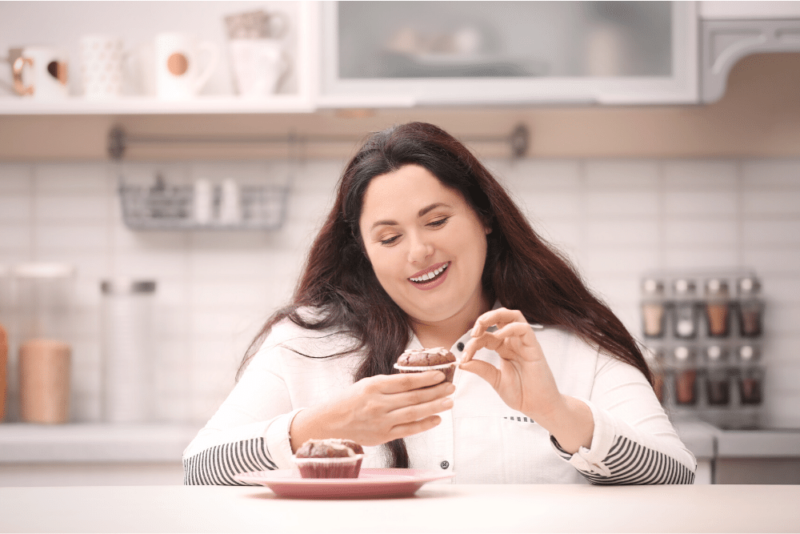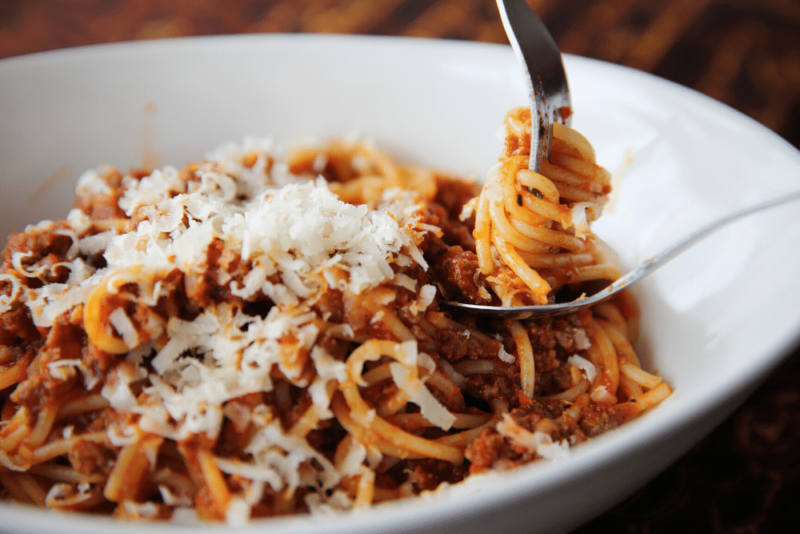
Intuitive eating isn’t a particularly new concept — dietitians Evelyn Tribole and Elyse Resch wrote the first edition of their book “Intuitive Eating” in 1995, with a fourth edition published in 2020 — but it’s been gaining momentum in the past several years.
Tribole said that the idea for that first book didn’t just come from thin air. “There was actually a lot of theoretical basis behind it,” she said. “It’s a well-defined, evidence-based model with a validated assessment and 10 principles,” Tribole said. In 2006, Tracy Tylka, PhD, a researcher at Ohio State University, used the principles to develop the Intuitive Eating Assessment Scale, which provided a means to validate the intuitive eating model in research studies.
In 2007, Tribole and Resch started certifying health professionals in Intuitive Eating after they noticed their work being used in ways they didn’t intend, including for weight loss. (I became a certified Intuitive Eating counselor in 2016.)
Today, there are more than 150 published research studies on intuitive eating. In spite of that, there are many misconceptions and myths about intuitive eating. Here are four that Tribole and Resch themselves frequently talk about, and I’m including some direct quotes from a talk they gave to about a zillion dietitians at the last in-person conference I attended before COVID hit.

Myth 1: Intuitive eating is all instinctual
One dictionary definition of intuitive is that it’s “instinctive,” but Resch has said we can’t eat by instinct alone, and that the true definition of intuitive eating is “the dynamic interplay of instinct, emotion and thought.” She points out that our brains have three integral systems — the “instinctual” reptilian brain governs primal instincts and impulses, the “emotional” mammalian brain is responsible for feelings, and the “rational” human brain (the neo-cortex) generates thoughts.
Resch has also said eating based on instinct alone wouldn’t work well for us “because we aren’t dinosaurs, we’re human beings.” She said one important aspect of the highly evolved neo-cortex is that it can monitor and influence our instincts and emotions, for better or for worse.
If you don’t have much of an appetite because you’re anxious, the neo-cortex can remind you that you should probably eat anyway, but it can also act as your internal “food police,” telling you to ignore your ignore hunger cues our that you’re “bad” because you ate a cookie.
Resch said many clients who describe themselves as compulsive, emotional, out-of-control eaters find that once they “challenge the food police” and “make peace with food” — two of the 10 principles — by letting go of rules and judgments about “good” and “bad” foods, most of their emotional eating ends.
“I’ve even had some clients who literally stopped eating emotionally, because so much of their emotional eating was because they felt bad about their eating,” she said. She also pointed out that because life is emotional we will sometimes eat emotionally. “Food is comforting. It’s fine to comfort ourselves with food, it’s just at what level we do.”
Related Post: 5 questions and comments new Intuitive Eaters get

Myth 2: Intuitive eating means eating whatever you want, whenever you want
Part of making peace with food is having unconditional permission to eat, something that Tribole has said is frequently misunderstood. Intuitive eating pairs that unconditional permission with attunement to the physical sensations that arise from within the body, which includes states such as hunger and fullness, as well as the physical sensations that accompany emotions.
The ability to perceive these sensations is called interoceptive awareness, which research shows is higher in intuitive eaters. “I think interoceptive awareness is our superpower,” Tribole said. “When we have a connection to the felt sense of our body, we have a treasure trove of information to get our needs met.”
Resch said the fear that someone eating “intuitively” will eat nothing but French fries is common, but that if this happens initially, it won’t last, because of attunement. “You’re listening to the signals your body gives you, so it’s not just about what your tongue wants. You want to look at, ‘How will this food make me feel? How will I feel afterwards? How will I feel while I’m eating it?’” she said. “It’s not just the instinct. It’s using the rational part of the mind to say, ‘How is this going to work for me?’”
Plus, she said that the more someone makes peace with all foods, the less allure formerly forbidden foods will have. “That food might be delicious, but you’re able to stop when you have enough.”
Intuitive eaters also have “body-food choice congruence,” a term Tylka created to reflect the “honor your health with gentle nutrition” principle, which is about choosing foods that feel good and energize the body.
However, many people who have a history of chronic dieting or who are trying to recover from an eating disorder find it hard to experience what is happening in their bodies, because they’re stuck in their heads.
Accordingly, the 10 principles help improve interoceptive awareness by either increasing sensitivity to biological cues or removing obstacles to noticing those cues, such as negative thoughts and beliefs about food and body. It really is a superpower.
Related Post: 3 Intuitive Eating mistakes you want to avoid

Myth 3: The ultimate goal of Intuitive Eating is weight loss
Two of the best-known principles — “honor your hunger” and “feel your fullness” — are frequently co-opted as a sort of “hunger-fullness diet.” However, Tribole said that intuitive eating is not about weight loss.
“Intuitive eating is about healing your relationship with food, mind and body. If you put the focus on weight loss, it interferes with the process of interoceptive awareness,” she said. “You’re focusing on external — on the scale, on the calories, on the macros. It’s outside, and we want people to be inside the body.”
Resch said that food deprivation, whether due to food insecurity, dieting, or holding on to negative ideas about food, makes it difficult to stop eating when full. “Who’s going to stop eating if you think this is your only opportunity,” she said.
Similarly, deprivation can lead to “primal hunger,” which makes it easy for the instinctual part of the brain to simply take over. This ties into the principle of “discover the satisfaction factor,” which Resch said informs all the principles. Moderate hunger makes food more satisfying than primal hunger, gentle fullness feels more satisfying than being overfull, and feeling bad about what you’re eating dims satisfaction.
“We’re not opposed if someone loses weight, that just can’t be the intentional agenda,” Tribole said. “Different bodies will have different outcomes. Some bodies will lose weight on intuitive eating, some bodies will gain weight, some will stay the same.”
Related Post: Can you do Intuitive Eating and want to lose weight?

Myth 4: You can’t use intuitive eating when you need to eat a specific way as part of treating a health condition
I’ve had many people tell me they wish they could learn intuitive eating, but they can’t because they:
- Have to limit sodium because of high blood pressure
- Avoid gluten because they have celiac disease or avoid peanuts because of a peanut allergy
- Wonder how to use the low-FODMAP diet to identify possible IBS triggers while also eating intuitively
Tribole has said quite clearly that what’s officially known as medical nutrition therapy (MNT) — using nutrition as part of an evidence-based treatment strategy (such as those I just mentioned) for a health condition — is compatible with intuitive eating, because intuitive eating doesn’t ignore nutrition or health.
The key, she’s said, is to avoid creating rigid rules so that people still have autonomy and agency over their bodies.
For example, when I work with IBS clients who have a history of rigid food rules and want to figure out what foods trigger their symptoms without triggering a return to a rigid food mindset, there are three things we talk about.
One is the difference between having rigid food rules for no evidence-based reason (i.e., based on the pursuit of weight loss or on dubious claims that eating X way will treat/prevent Y disease).
The other is that there is solid evidence supporting the low-FODMAP diet for IBS, and that the end goal of going through the different phases of the diet is to determine which foods, in which amounts and frequencies, trigger symptoms. I’ve never had a client for whom ALL high-FODMAP foods trigger symptoms. This ultimately reduces food fears and increase food freedom.
Three, most of the 10 Intuitive Eating principles are 100% compatible with necessary food restrictions, and the few that seem to be in conflict (“Make Peace With Food” and “Challenge the Food Police”) are still compatible in spirit.

The bottom line
Resch said intuitive eating includes about respecting the body and accepting individual genetic blueprints for size and shape. “We know that green jellybeans don’t have as much nutritional value as broccoli does.”
However, she said it’s how we react to the food that’s important. Can we get to a place where we react neutrally to foods (rather than labeling some as “good” and others as “bad”) and treat them as emotionally equivalent even when we know they aren’t all nutritionally equivalent? “Without full peace with food, [we’re] never going to become free.”
This post contains Amazon Affiliate links. As an Amazon Associate I earn from qualifying purchases.
Carrie Dennett, MPH, RDN, is a Pacific Northwest-based registered dietitian nutritionist, freelance writer, intuitive eating counselor, author, and speaker. Her superpowers include busting nutrition myths and empowering women to feel better in their bodies and make food choices that support pleasure, nutrition and health. This post is for informational purposes only and does not constitute individualized nutrition or medical advice.
Seeking 1-on-1 nutrition counseling? Carrie offers a 6-month Food & Body program (intuitive eating, body image, mindfulness, self-compassion) and a 4-month IBS management program (low-FODMAP diet coaching with an emphasis on increasing food freedom). Visit the links to learn more and book a free intro call to see if the program is a good fit, and if we’re a good fit!
 Print This Post
Print This Post






